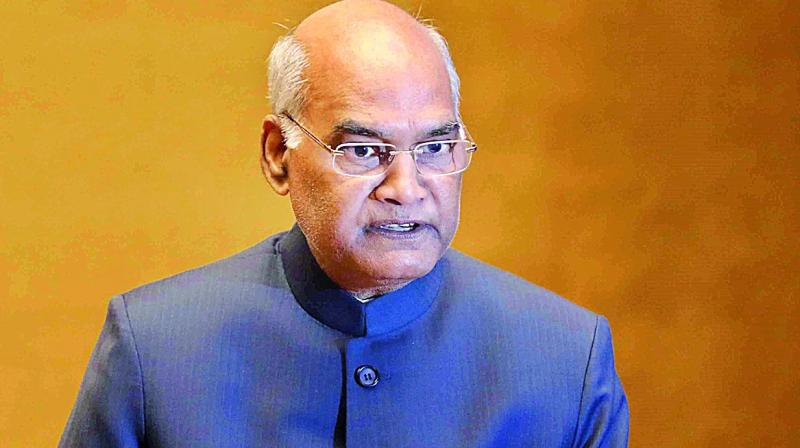Once results are in, it’s over to the President

At his “non-presser presser” on Friday, Prime Minister Narendra Modi left little to the imagination that he would move heaven and earth to take the oath of office and form the nextgovernment immediately after the Lok Sabha poll results are declared on May 23.
“It seems the people of the country have already given their mandate,” declared Mr Modi two days before the seventh and final phase of polling for 59 seats, which is due on Sunday. As if to drive the point home, he said, “We have also made promises. We will start implementing our agenda immediately after government formation.”
The forthrightness and presumed certainty, with which Mr Modi has expressed himself, is unusual for an incumbent whose party may not win the election in terms of returning with 272 seats, the halfway mark in the Lok Sabha. If the results show that the BJP and its pre-poll NDA allies command the majority in the Lok Sabha, Mr Modi may return as PM almost as a matter of right. If that’s not the case on May 23, then the field of politics is wide open — both within the BJP and outside of it.
To assert anything to the contrary even obliquely is to do disservice to Rashtrapati Bhavan. If the incumbent fails to cross the halfway mark, the President comes into full play before he invites a Prime Minister to take oath. In this “zero hour of politics”, no aspirant may presume anything.
In the coalition era, the custom has emerged that the Rashtrapati invites the leader of the largest party to take oath as PM. But this can lead to errors if the rule is applied mechanically. This was so in 1996 when President Shankar Dayal Sharma swore in the BJP leader, Atal Behari Vajpayee. But Mr Vajpayee failed to muster a majority and resigned in 13 days, declining a chance to take a vote of confidence.
This example casts a responsibility on President Ram Nath Kovind to ensure that he is swearing in the right man, one who can command the majority in the Lok Sabha.
Since the poll result is not yet known, the President would be within his rights to take discreet steps to gauge the minds of the leading players — national and regional. And if, on May 23, no single party or pre-poll coalition commands a majority, the Rashtrapati, in order to ensure the formation of a stable government, could insist on letters of support from parties on their choice of leader, as was done by President K.R. Narayanan in 1998 after the failure of his predecessor’s method had become all too apparent.
Let no one be presumptuous enough to think otherwise. This is important for the democratic order. But if the BJP comes in with 300 seats, as its president Amit Shah predicts, Mr Modi may take fresh oath right away.

